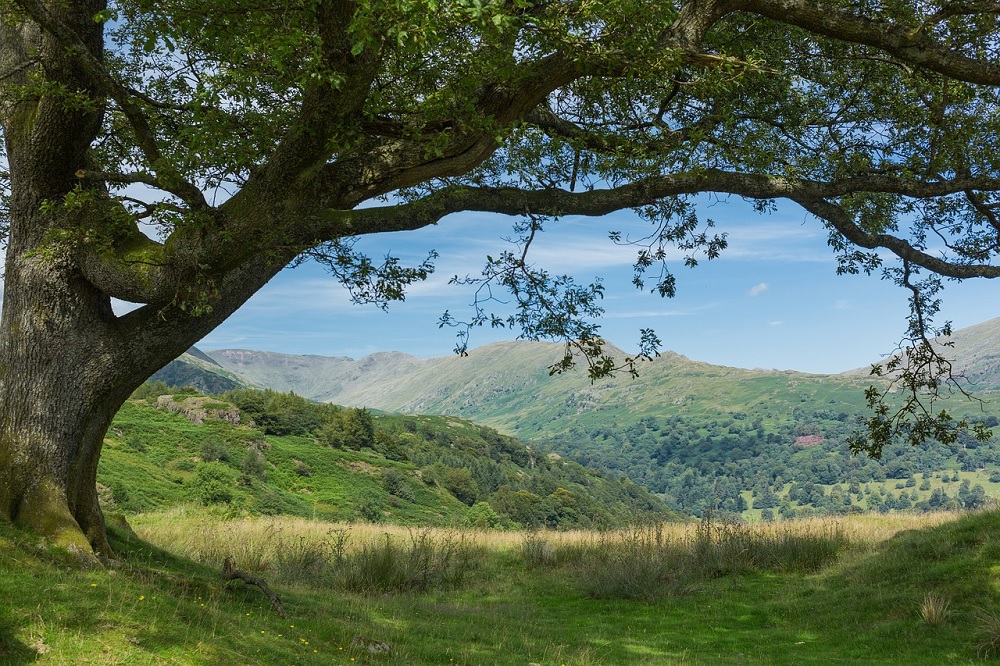Why the next Senedd elections could be the greenest yet

Richard Nosworthy
Despite a year dominated by the pandemic, another issue has also resonated strongly in recent months – the environment. With green groups now setting out their asks of the political parties, could nature and climate change be about to influence the next Senedd in a way never seen before?
We’ve had a year like no other. With the horror of a major health crisis and its economic impact, many of us sought solace in the natural world.
With pubs, tourist attractions and shops closed or restricted for many weeks in 2020, many of us spent more time in parks and other green spaces or, if we were lucky, in the garden or allotment.
My daughter and I paddled in the river. I went running and walking in woods I’d never seen, a stone’s throw from my house. I built a pond and log-pile for insects and used an app to identify birds.
The pandemic has dominated our lives, and brought us closer to nature, but the fact remains that our environment is in crisis.
The State of Nature 2019 reported that one in six species in Wales are threatened with extinction and the State of Natural Resources Report says that none of our ecosystems are resilient.
Meanwhile, the World Meteorological Organization (WMO) reports that the industrial slowdown due to the COVID-19 pandemic has not curbed record levels of greenhouse gases which are trapping heat in the atmosphere, increasing temperatures and driving more extreme weather.
Such reports will no doubt spark further unease in Wales about the risk of further floods, of the kind that struck earlier this year, and there is evidence that the Welsh public were highly concerned by environmental issues.
That goes way beyond those who’ve joined the big protests and strikes. In January, a YouGov/Welsh Barometer poll for Cardiff University revealed that 33 per cent of us said the environment was one of the most important issues facing the country, in 3rd place behind Brexit and health, but above the economy and crime.
Ideas
There are also signs that the environment is now very high on the agenda of leading politicians.
Many in the environmental movement will have been heartened by the Labour First Minister’s decision to halt plans for an M4 relief road, citing both cost and environmental grounds.
Plaid Cymru leader Adam Price used his conference speech to recognise the growing connection people had with the natural world, saying “This year of health emergency has deepened our resolve to address those other crises, of climate and of nature.”
And quoting Margaret Thatcher, Welsh Conservative Leader Paul Davies told his party “It’s we Conservatives who are not merely friends of the Earth – we are its guardians and trustees for generations to come.”
So it’s clear that the climate and nature crises do matter to the public and the main political parties – but to what extent will this have an impact in May’s elections?
A lot will depends on other issues – notably the impact and handling of the pandemic, as well as the effects of Brexit. But our environmental problems will certainly still be with us in six months’ time, and the next Welsh Government will have the job of dealing with them.
Of course, it’s one thing to pledge support for the environment, but the true test will be the policies and practical changes that follow. And there’s no shortage of ideas, with the green organisations now setting out their stalls.
Important
These include RSPB Cymru, calling for a five-step Green Recovery, including support for green jobs and infrastructure, measures to tackle food waste and tougher environmental targets. A set of asks has also been produced by WWF Cymru, which includes dedicating 1% of all budgets to restoring nature and combating climate change, measures to tackle river pollution and making Wales a ‘deforestation free nation’. The Future Generations Commissioner has published a 48-point ‘Manifesto for the Future’, including calls for 20% tree canopy cover in every town and city in Wales by 2030, and ensuring ethical investment for public sector pensions.
On transport, Sustrans Cymru has released its manifesto, calling on parties to invest a minimum of £20 per head per annum in active travel and restrict cars near schools. Living Streets wants a Clean Air Act, as well as a 20mph speed limit in urban areas, a ban on pavement parking and more, safer road crossings.
Overall, these asks are a reminder of the scale and number of decisions needed, and the exciting potential of Cardiff Bay to make a real difference in the years ahead. If such policies are adopted, we could see our communities become much more pleasant and healthier places to live, and we’ll be better placed to deal with threats like climate change.
With at least half a year to go until we vote, it’s difficult to know how the parties might fare.
That said, voters have shown over the last few years that environmental issues are important, and these issues certainly won’t disappear before May.
With 16 and 17 year olds getting the vote, and the Welsh Green Party adopting a pro-independence stance, the environment is likely to be an interesting and important factor in the formation of our next Senedd and Government.
Support our Nation today
For the price of a cup of coffee a month you can help us create an independent, not-for-profit, national news service for the people of Wales, by the people of Wales.






